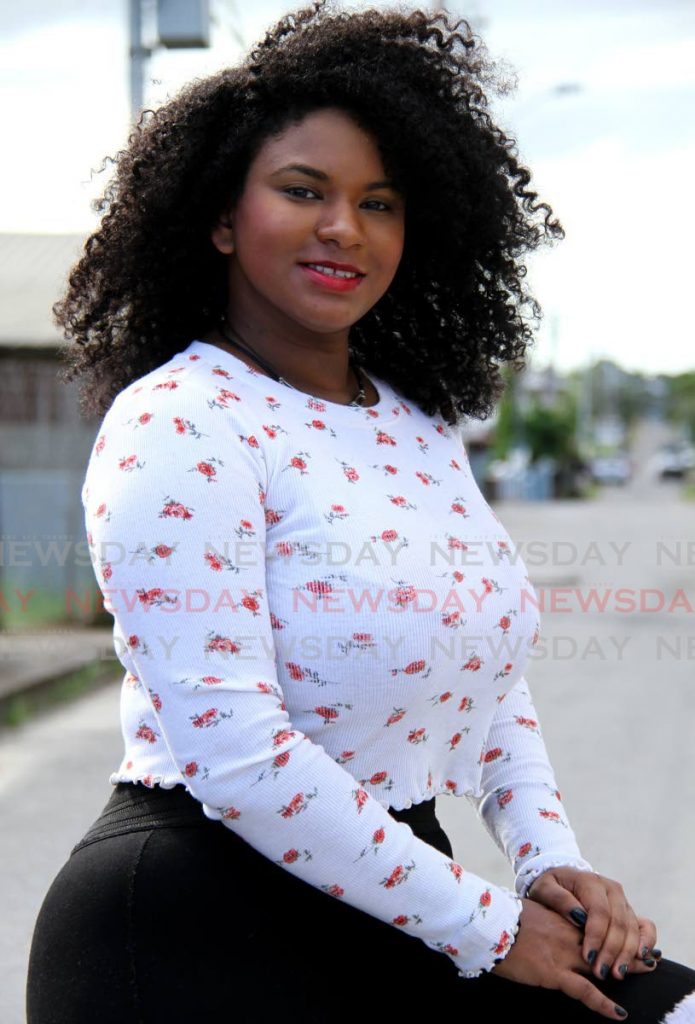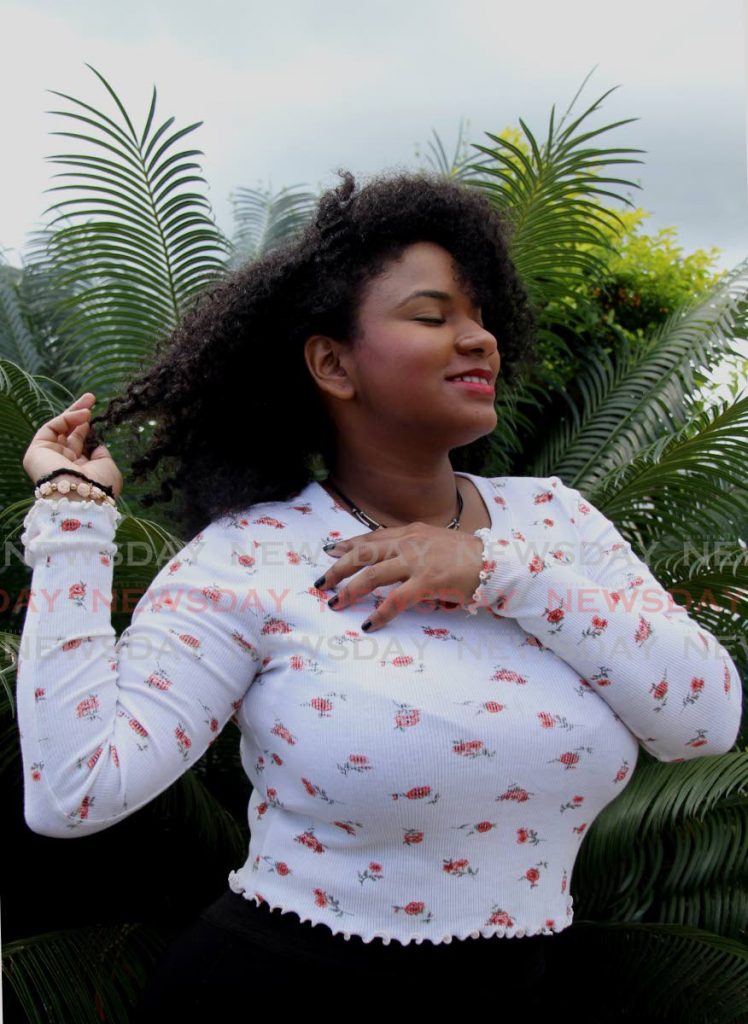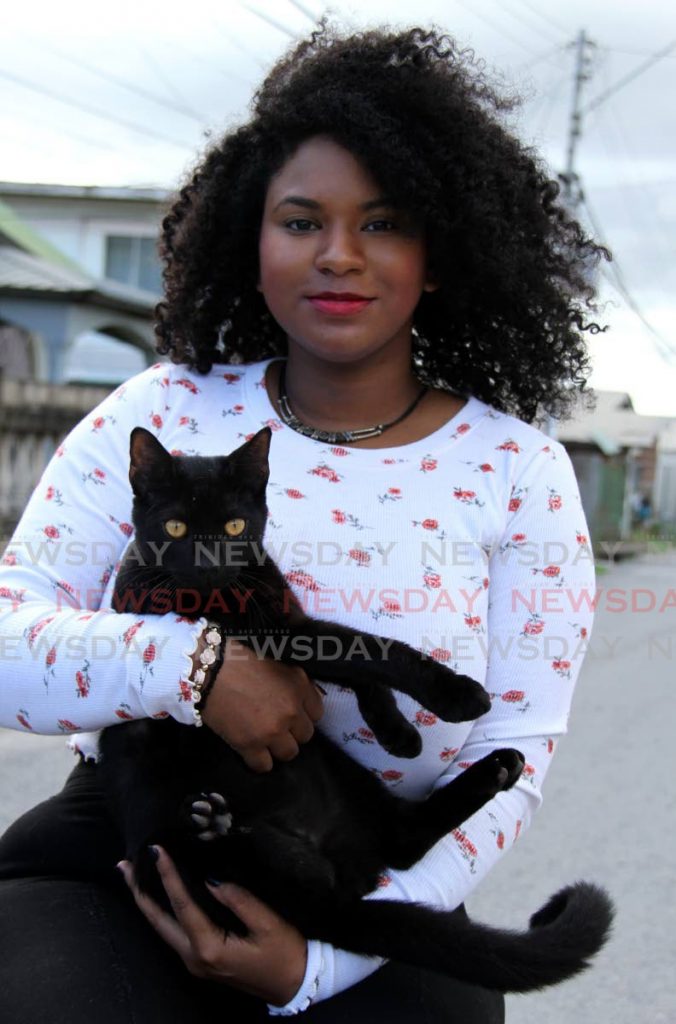Dara Kowlessar-Jackson, 25, donates her eggs to help couples have babies

LIFE isn’t always fair. Thankfully there are the Dara Kowlessar-Jacksons among us who try to help tip the scales in favour of others, sometimes even for people they don’t know.
The 25-year-old aspiring clinical psychologist told WMN about how she donated her ova through the TT IVF and Fertility Centre so an anonymous couple struggling with fertility issues could have the opportunity to become parents. This was her little way of making the world a little less unfair.
“I remember sitting in my room and thinking life is so unfair. The word unfair became a very unsettling thing. I understand that the world's not fair. I haven’t caught a break for a long time. I saw people who were unkind, who betrayed other people and were getting by, and I sat with that word and thought although the world is unfair I can still make it fair to somebody else. I don’t have to make it fair for me.”
She explained that four years ago the thought of becoming an egg donor first came up during a conversation with her then boyfriend’s mother. At the time she was still a student at the University of West Indies (UWI) and paid very little attention to it. After completing her degree and graduating with first class honours, the thought resurfaced during a discussion with a friend about having children.
She knew that she didn’t want children of her own, but she wanted to help someone who wanted to be a parent and was having difficulties.
“I have the option to say I don’t want kids, but some women don’t have that option. That has to be one of the most unfair things in the world. Look at me, I have this accommodating womb and all these eggs just chilling. After puberty you have about 300,000 eggs and in your life you use 300 to 400.”
She emailed the clinic and found out more about the process, part of which included submitting one of her baby photos.
“I was told that it usually takes up to at least six months before you are selected after submitting a baby picture. Mine took a hot minute,” she chuckled.
The process
According to the clinic’s website, to become a donor the selected candidate must be between 21 and 28 years, a non-smoker with normal hormone blood tests. The donor must also be healthy with no infectious diseases or inheritable disorders with normal periods without severe pain.
This, she said, solidified her resolve to become a donor. And although each donor is given a $5,000 contribution, Kowlessar-Jackson said the financial benefit was never part of her reasoning to donate.
Any successful donor has a limited donation of three families as was explained by Dr Catherine Minto-Bain, director of the clinic.

Minto-Bain said once the donor has no children of her own, three other families can be donated to. The only exception is if a recipient wants the same donor a second time, which has happened before. Ideally because of the sample size of TT, three families per donor is perfect.
Minto-Bain explained that the process is not a short one with seven out of every 100 women who wish to donate actually doing so.
“It’s a rigorous process that can take between four to six weeks if the donor is known to the couple and can be as long as three months for anonymous donors.”
Donors are made to undergo a psychiatric evaluation to ensure they are mentally prepared for the process along with screenings, medical tests and fertility ultrasounds, which is done within seven sessions prior to be selected.
After being selected donors are given follicle stimulating hormone (FSH), a naturally producing hormone but at an elevated level so that the donor produces more eggs. This is injected daily for up to 16 days depending on the donor’s age and other medical differences. They are also made to take Cetrotide which prevents the body from ovulating while the FSH allows the ovaries to expand and produce more eggs. During this period the donor is scanned up to three times a week.
“To harvest the eggs we use an ultrasound biopsy through the vagina. Think of it like a blood test but for about 20 minutes. The donor is not under general anaesthesia but is what we call conscious sedation which is safe they feel no pain while the eggs are harvest.”
Minto-Bain added that in the past the method was more invasive as it was laparoscopy through the navel. That method required general anaesthesia.
The entire process was documented by Kowlessar-Jackson who shared her journey on her YouTube channel CaribbeanSpyce. She said following the harvesting donors should “expect soreness.”
“It is like having an intense abs workout or the first day of your period. I felt sore for about up to four days after but for women with regular periods it is not outside of that.”
A faith-based decision
Kowlessar-Jackson described herself as a liberal Christian and said it is her faith in Christ that fuelled her passion to becoming donor. Asked if she thought her decision not to have children contradicted her faith, she said, “I get that in the Bible it says go forth and multiply, but I don’t think that my faith contradicts my decision not to have children. We are an overpopulated species, me not having kids is not affecting anything.”
She is the last of three children and only child of her father, and her decision to donate her ova was met with mixed reactions by her family. Her mother, Christine, is saddened by the fact that she will not be able to hold her first ‘grandchild’.

“It was a mixture of emotions, first of all I was happy that she had the unselfish desire to help because I think her motivation was helping a couple who can’t have children.” She said it bothered her daughter that she could have children and did not want to while there were people who were the complete opposite.
“To me, her motive was pure, and I admire her for that. However, as a parent I felt sad that my first grandchild was going to be given away. I want to see that child so bad. It was a real mixed emotions on my part. I have a strong desire to see that baby and to know it.”
Kowlessar-Jackson said although her mother voiced her concerns, her parents had raised her to be autonomous and they trusted her decision.
She recalled asking her mother: “If I was in that position and someone could give me eggs will you bat your eyes at them or say, ‘give my child the egg’?”
“I can’t say they, if they (my parents) were supportive or not supportive it was just like ‘Dara doing her thing’. They are aware that I think through my decision so although this was a ‘vaps’, it was a well thought out ‘vaps’. They know when I make a decision, I am 100 per cent sure I will not regret it because I weigh my pros and cons.”
She said both her brother and father played an important role in shaping who she is as a woman. Her father, she said raised her to be a feminist. Her brother was the one who gave her the daily FSH injections while her sister supported her decision throughout.
Meeting her offspring
Kowlessar-Jackson said she never thought of suggesting a name for her selected ova because she was not donating a child but an opportunity for someone to have a child. Despite that, she is not averse to meeting the person she contributed to being, if they so decide.
“I hope they do actually, after they turn 18. I will be very happy if they found me. For someone who is multi-racial, I love my history. Because of that sentiment I will love if that person, if they are interested in it, to reach out. If they do find me I am happy to tell them where they came from. I will look forward to it, but I won’t bank on it either.”
She recalled praying nightly through the process asking God that the child not inherit her “lame traits,” among them pessimism and talking too much. She joked that her relationship with God is good enough that God will ensure that her “gene pool/ egg/kid” grow up in a loving home like she did.
To women contemplating donating eggs, she offered this advice. “I am a motherly person for the people in my life. I care for you very deeply but to say I have a maternal instinct to have children, I don’t have that. I am sure I do because biologically speaking I should, but it is not strong so when I did this I did it with the idea that I was gifting someone an egg. It was never like I am giving away my child.”
She said women who want to, should decide with caution because it is not an easy process.
“If you can and you know you can handle the idea of giving away a part of yourself to somebody to raise and you’re sure about it, then yes do it.”
The Longdenville, Chaguanas resident is now awaiting responses from international universities on whether she will be accepted to pursue her dream. She said the removal of scholarships offered to honour students made her feel cheated. But because she was raised to be an independent, strong woman, she sent out her applications.

The former bimonthly volunteer at the Eric Williams Psychiatric Clinic under supervision, said she wants to return to TT and give back by changing the way mental health is viewed. For her, egg donation was a form of therapy and one of the many ways in which women can support each other.
“For me, up to what I did was a midway point and I hope it relieves her (the recipient) a bit. I hope it brings some sort of healing.
“I am tired of seeing that term being thrown around that women should support women. What do you do in your everyday life to support another woman? Don’t say it unless you preach it and do it and to me this is one way. It is an extreme way,and if this is one way you believe you can do it, then please do.”
Interested donors can email egg@trinidadIVF.com or call 868-622-8869 Maraval Clinic, 868-222-8341 St. Joseph Clinic and provide some information about yourself. We need to know your date of birth, height, weight and details on any pregnancies you have had. If you are suitable the next step is to complete a detailed questionnaire.
For women who are then selected to be considered as egg donors, the next step is to chat with a nurse and have the free blood test done, which starts the process. There is then a six step process to pass through before you will know whether you are accepted onto the egg donor programme.

Comments
"Dara Kowlessar-Jackson, 25, donates her eggs to help couples have babies"